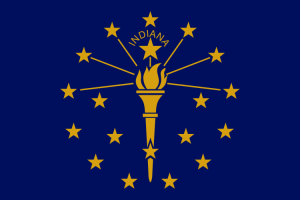Part 1: Due November 11th, 2015:
https://en.wikipedia.org/wiki/Flag_of_South_Dakota
Part 2: Due November 25th, 2015:
- a) If a decedent is survived by a spouse and issue.
The entire intestate estate goes to spouse if no descendant of the decedent survives the decedent; or all of the decedent’s surviving descendants are also descendants of the surviving spouse. The first $100,000, plus one-half of any balance of the intestate estate goes to surviving spouse, if one or more of the decedent’s surviving descendants are not descendants of the surviving spouse. (http://www.mystatewill.com/states/sd_law.html)
b) If a decedent is survived by a spouse and no issue.
The entire intestate estate goes to spouse if no descendant of the decedent survives the decedent; or all of the decedent’s surviving descendants are also descendants of the surviving spouse. (http://www.mystatewill.com/states/sd_law.html)
c) If a decedent is survived by no spouse and no issue.
If there is no surviving descendant, estate goes to the decedent’s parents equally if both survive, or to the surviving parent; If there is no surviving descendant or parent, estate goes to the descendants of the decedent’s parents or either of them by representation.
If there is no surviving descendant, parent, or descendant of a parent, but the decedent is survived by one or more grandparents or descendants of grandparents, half of the estate passes to the decedent’s paternal grandparents equally if both survive, or to the surviving paternal grandparent, or by representation to the descendants of the decedent’s paternal grandparents or either of them if both are deceased; and the other half passes to the decedent’s maternal relatives in the same manner; but if there is no surviving grandparent or descendant of a grandparent on either the paternal or the maternal side, the entire estate passes to the decedent’s relatives on the other side in the same manner as the half.(http://www.mystatewill.com/states/sd_law.html)
To compare to New York for Question #1 on statutes that govern intestate succession in the following three situations:
a) If a decedent is survived by a spouse and issue.
The first $50,000, plus one-half of any balance of the intestate estate goes to surviving spouse and the rest gets divided between the decedent’s surviving descendants.
b) If a decedent is survived by a spouse and no issue.
A surviving spouse and no issue, the whole estate to the surviving spouse.
c) If a decedent is survived by no spouse and no issue.
The whole to the surviving parent or parents.
2. In South Dakota, an individual 18 or more years of age who is of sound mind, may make a will. (http://law.justia.com/cases/south-dakota/supreme-court/1998/550.html). In New York State, an individual 18 or more or older who is of sound mind and memory can make a will.
3. In South Dakota in order to duly execute a will there must be two witnesses (http://livingtrustnetwork.com/estate-planning-center/last-will-and-testament/requirements-for-a-will/southdakota.html). In New York State in order to duly execute a will there must be two witnesses as well.
Part 3: Due December 2nd, 2015:
4) The largest city population in South Dakota is Sioux Falls City. http://www.togetherweteach.com/TWTIC/uscityinfo/41sd/sdpopr/41sdpr.htm
See link below to the website of a law firm that specializes in Probate/Estate planning in Sioux Falls city.
5) See link below for a real estate appraiser in Sioux Falls City.
http://www.shaykettappraisal.com/
6) Sioux Falls city is located in Minnehaha County. Minnehaha County Clerk of Court’s Office was the closest I was able to get in my search to find where a probate case of Sioux Falls city may be heard. The address of the court is 425 N. Dakota Avenue
Sioux Falls, SD 57104.
See image of the Court below

7) If a student wishes to earn an Associates or Bachelors degree in legal studies in Sioux Falls city, they may attend National American University. Here is the link to the schools website http://www.national.edu/. This school is ABA approved. Their tuition costs $100 more per credit that City College of Technology tuition.












